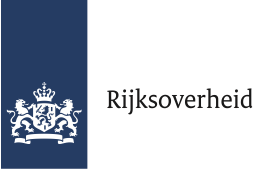New technologies and knowledge create possibilities to assess safety of chemical substances with other methods than by animal experimentation. Are you interested to contribute to the transition to animal-free innovations in risk assessment? Are you passionate about computational modelling of biological processes, interested in the toxicological effects of inhaled substances? Then this PhD position might be perfect for you!
The department
In this position you will be appointed at the Department of Innovative Testing Strategies, of the Centre for Health Protection at the RIVM. In this department 20 colleagues (scientists, technicians and PhD candidates) work on human-relevant test methods and strategies to assess adverse health effects of chemical substances and materials. We are active in scientific committees that assess the applicability of new methods for regulatory purposes. We advise policymakers on topics like next-generation-risk-assessment and transition to animal-free innovations.
Your project is part of the research project VIOLIN. This project is a collaboration with Maastricht University, where you will also defend your thesis at the end of the project. There, you will be affiliated at the faculty of Health, Medicine and Life sciences (FHML), and specifically theMERLN Institute for Technology-Inspired Regenerative Medicine, in which the group of dr. Carlier focuses on computational modelling of biological processes.
Your primary workplace will be at the RIVM, and you will also maintain a strong connection with Maastricht University by regularly working at that location.
The VIOLIN project aims to develop a quantitative Adverse Outcome Pathway (qAOP) to predict persistent respiratory inflammation induced by inhaled chemicals. To assess the health impact of inhaled toxicants, there is an increasing demand to usein vitroandin silicomethods. This requires a mechanistic understanding of the biological processes involved in the pathology, which can be captured in an AOP. Currently specific steps in the biological cascade are investigated in a qualitative way, but a quantitative understanding of the processes described in the AOP is needed to derive a health-based guidance value.
The focus of this project is on the effects caused by NO2, leading to persistent inflammation as an intermediate step in the development of respiratory health effects. As a PhD student on this project, you will build and extend an existing AOP for NO2 induced respiratory inflammation based on available data on toxicological effects of NO2 and biological processes. In parallel, you will construct a Bayesian model to quantify relations between steps in the biological process.In vitroexperimental data will be collected to improve the prediction of the model.
Unique for this position
In this PhD project you can work on a societal-relevant topic using cutting-edge scientific approaches. You will work in an interdisciplinairy team, with expertise in (inhalation) toxicology, agent-based modelling, Bayesian modelling and risk assessment. The project has an advisory group with expertise in related fields, such as clinical science, pathology, immunology, epidemiology and more. With your PhD project, you will bridge these disciplines, bringing together different sources of knowledge that will lead to new scientific insights.
The collaboration between RIVM and MERLN offers you the chance to perform your research in renowned organisations in the field of health and safety. RIVM has a unique position in the field of innovations in toxicology and animal-free research, with direct links to policy makers and involvement in many international research projects. MERLN is part of Maastricht University and brings together an international community of researchers from a wide range of disciplines, including computational modelling to tackle complex challenges in regenerative medicine.
More information and apply
Are you interested in this PhD-position? Send your application via the apply-button to Dr. Janine Ezendam, Head of the Department of Innovative Testing Strategies. Applications received by e-mail will not be processed. If you have any questions regarding this vacancy, you can contact Dr. Yvonne Staal, +31 6 1538 1098.
The application deadline is Sunday, 19 October at 23:59 hours..The first interviews will take place on October 29 in Bilthoven. The second interviews are scheduled for November 6.
Curious? You can find more information on our work, including publications and ongoing projects at:Alternatives to animal testing | RIVM
Also, TPI.tv contains short videos about the research in our department, such as:Respiratory toxicity using in vitro methods / TPI TV
Good written and verbal communication skills in English at a level appropriate to scientific research. Verbal communication in Dutch is appreciated.
Certain vaccinations are required to be allowed to work in the laboratory.

